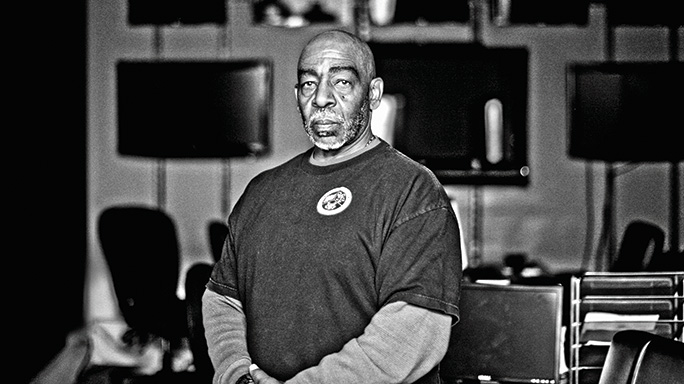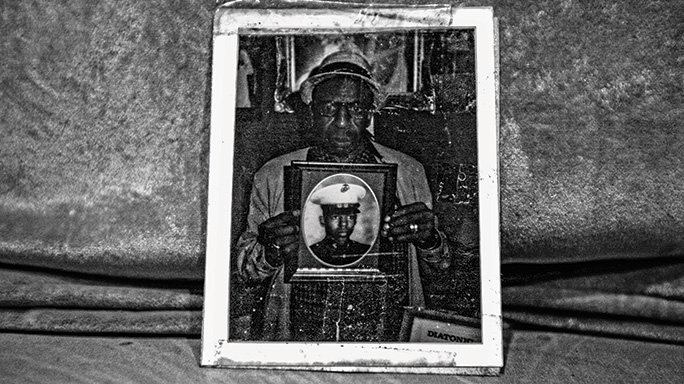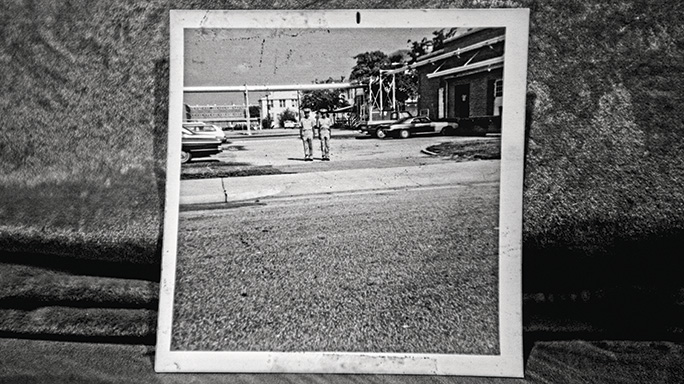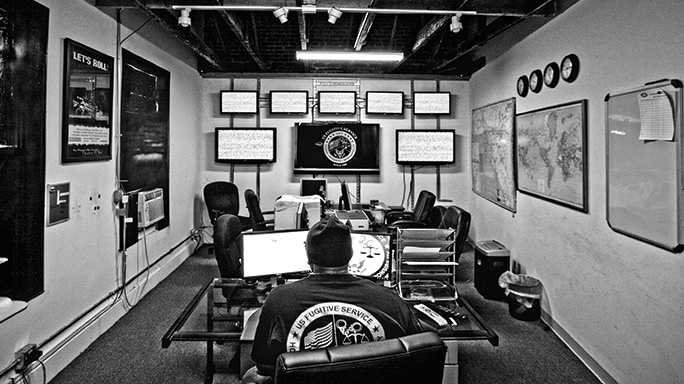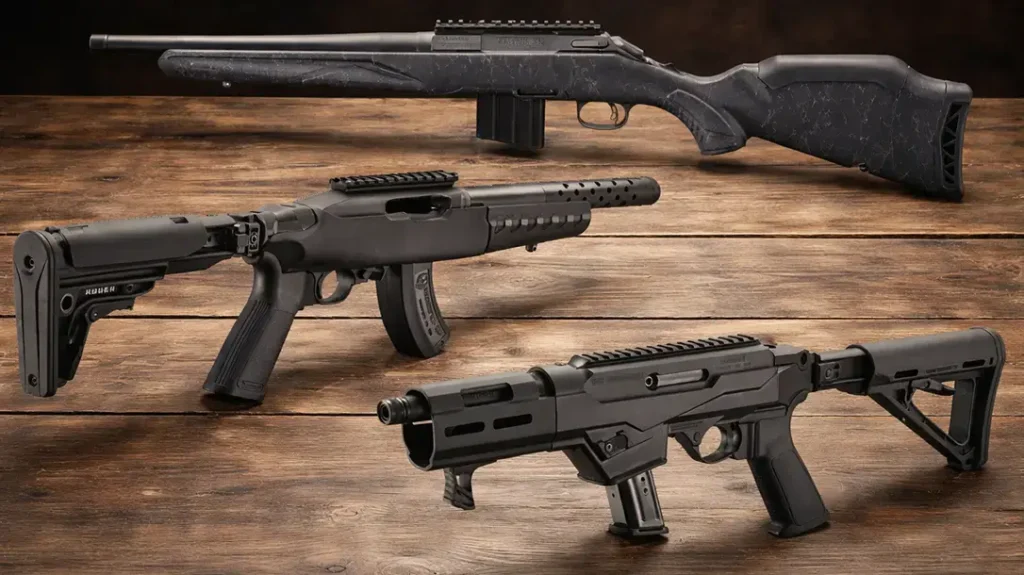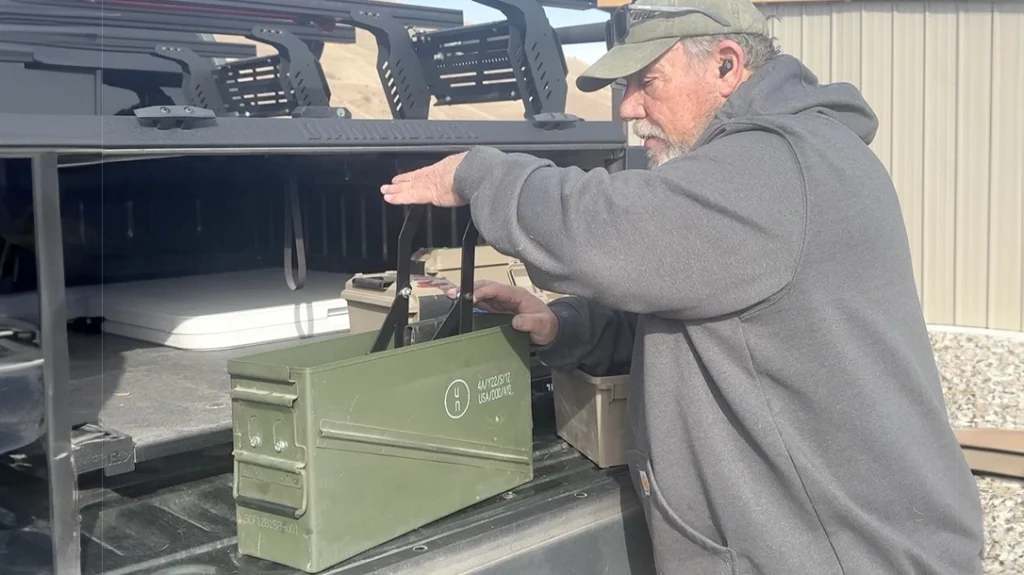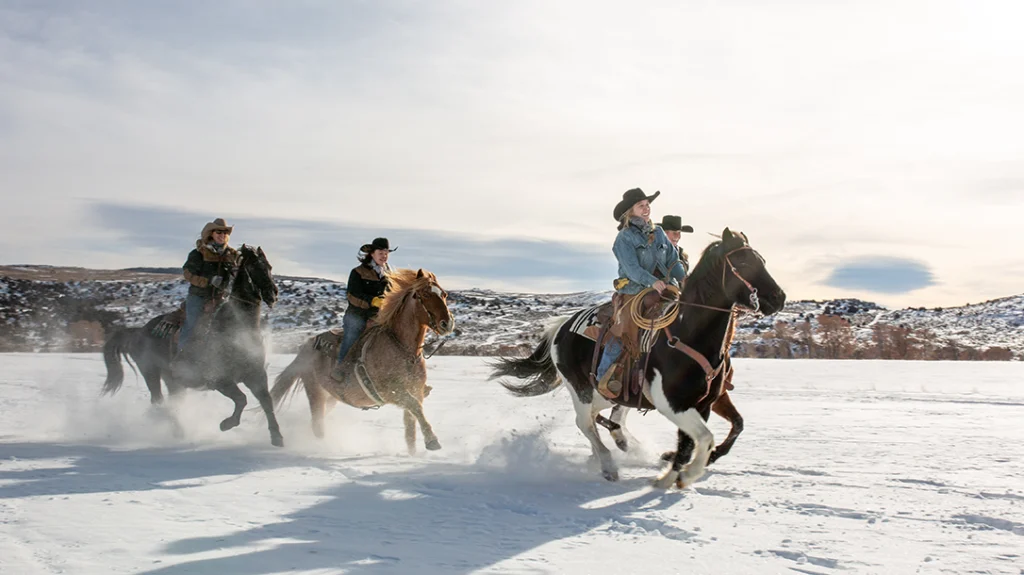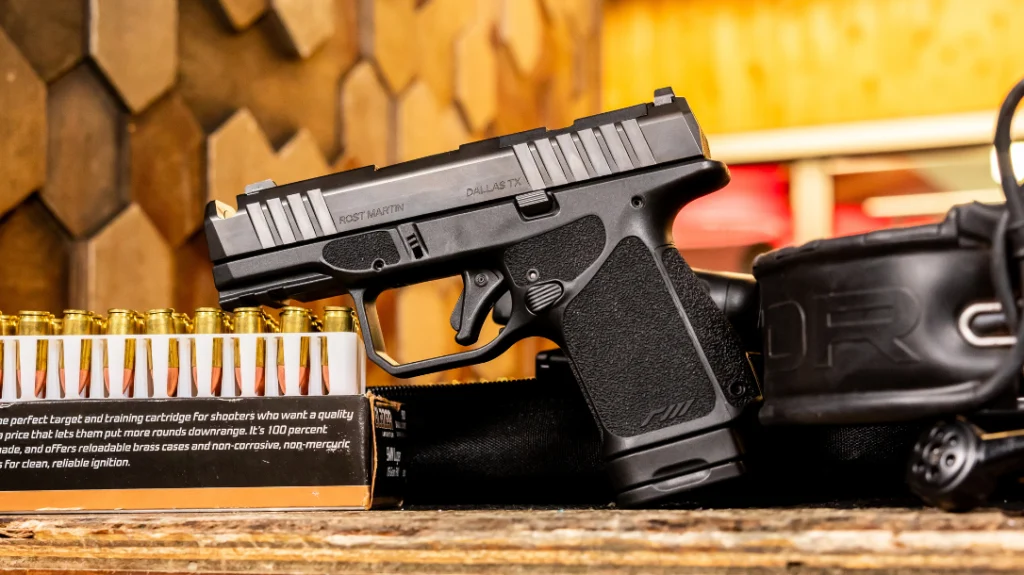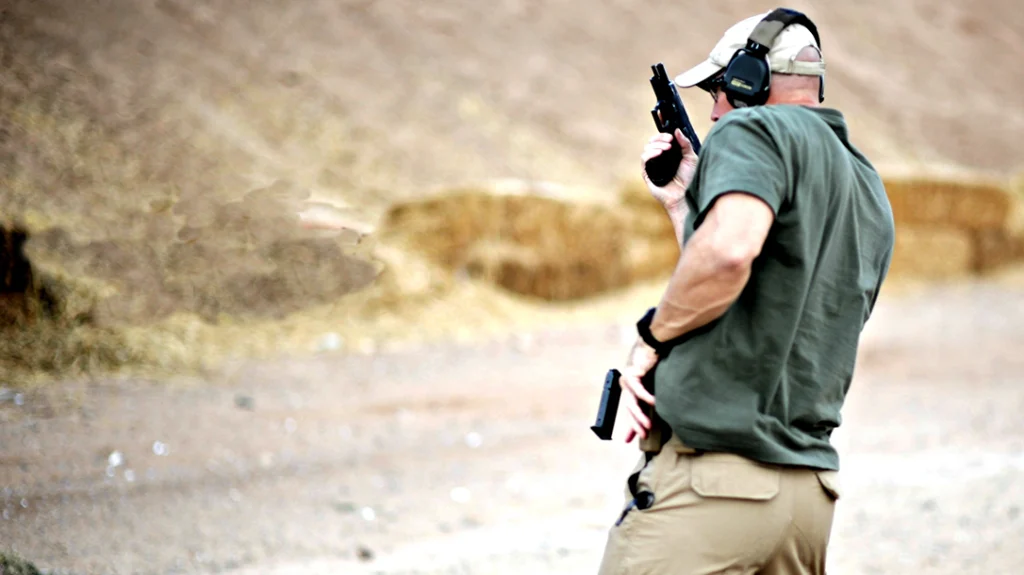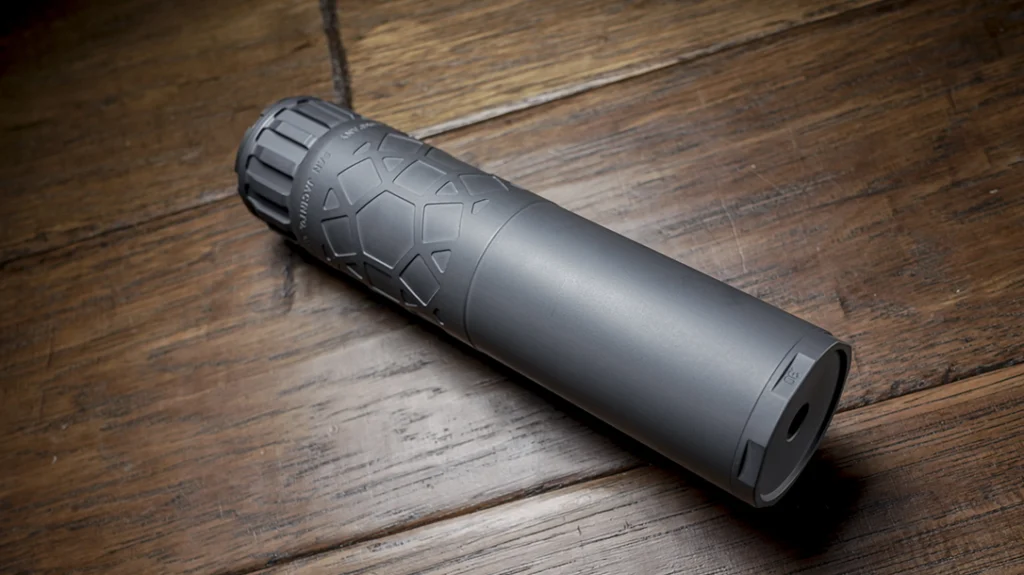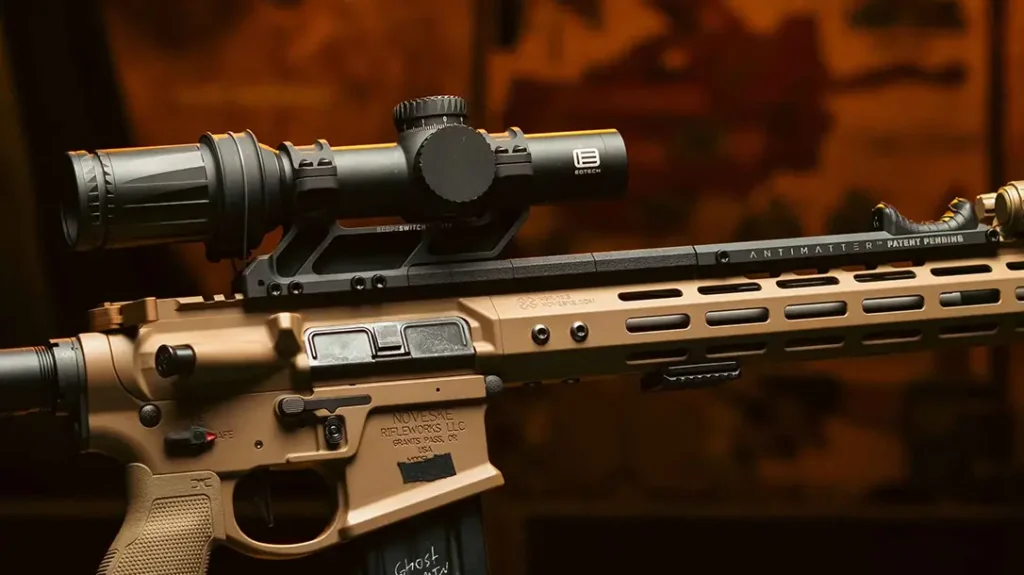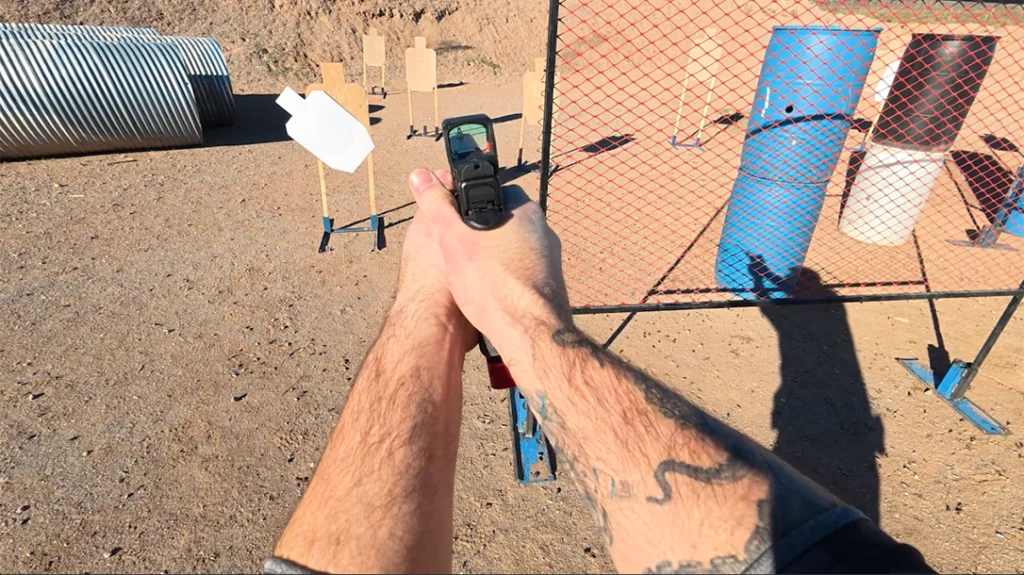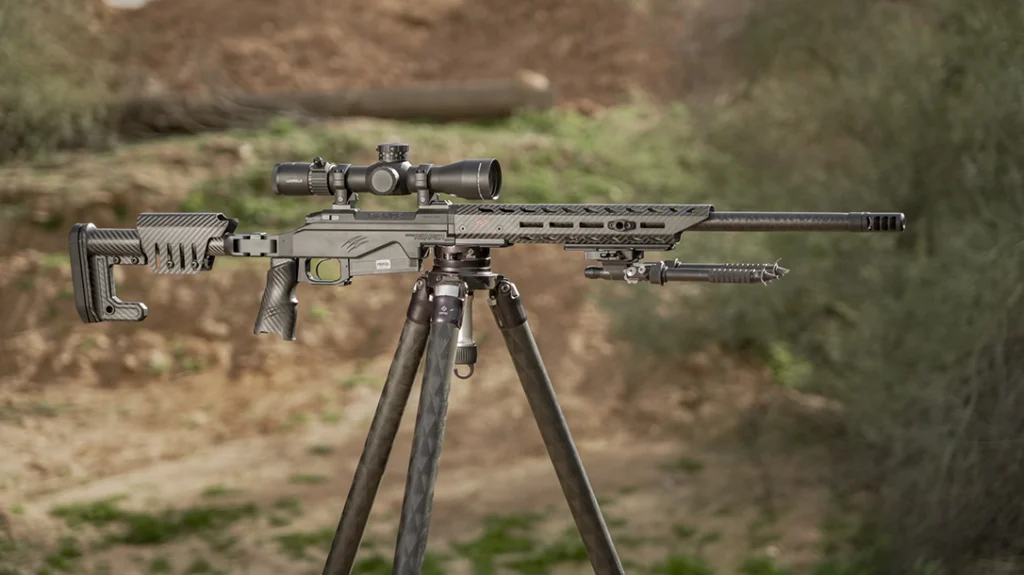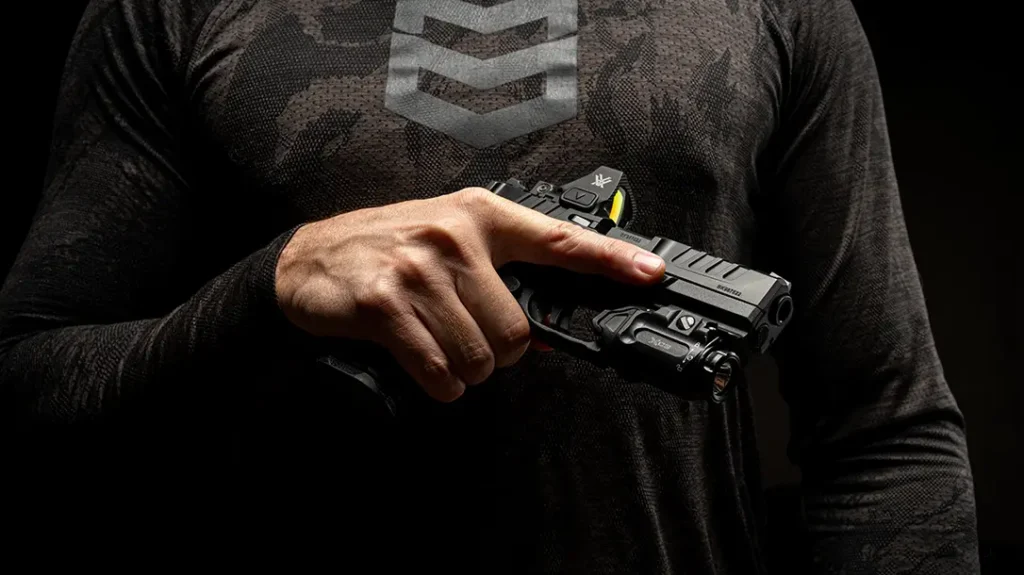Entry into an organization or a profession means nothing without years of dedication and success to back it all up. This is where experience trumps title. It is that valuable on-the-job experience that refines one’s skills and sharpens intuition. In the end, it’s what ultimately makes or breaks us.
For Ryan Smalls, experience isn’t an issue at all. His wealth of expertise dates back to the mid-1970s, when he first became a criminal investigator for the United States Marine Corps Criminal Investigation Division (USMC CID). The experience he gathered as a criminal investigator served many purposes, and while the memories are plentiful, so were the opportunities—one of which landed him a job as a special agent for the Naval Investigative Service (NIS).
- RELATED STORY: Q&A with Creative Arms President Bob Folkestad
Just hearing the acronym NIS should be proof enough that his seniority in the game is well deserved. It is the same organization that is now known as NCIS (Naval Criminal Investigative Service) thanks to an agency name change in 1999.
Advertisement — Continue Reading Below
During those years, Smalls was investigating felony crimes against military personnel and was assigned to cases around the globe. He has since turned his skills and priceless experiences in criminal investigations, surveillance and narcotics investigations into a business of his own. In 1998, he created the US Fugitive Service—a company that specializes in exonerating bail bonds by apprehending and surrendering fugitives, both locally and internationally. Today, US Fugitive Service International continues to work with local and international law enforcement agencies, including Interpol, to aid in the arrest and transportation of fugitives. In addition, Ryan Smalls has doubly increased his enterprise by expanding his services to include private protection.
We had a chance to sit down with Ryan Smalls and learn more about his experiences and current company.
What prompted the creation of US Fugitive Service International?
Advertisement — Continue Reading Below
I created this company back in 1998 with two retired law enforcement officers because we saw a demand that still exists today. That demand was for the apprehension of fugitives and public safety. I understand that law enforcement cannot effectively bring every fugitive back into the system—not because of a lack of talent, but simply because of tight budget constraints and a consistent lack of resources.
I would like to stress that we are not “bounty hunters” as portrayed by Duane Chapman, aka Dog the Bounty Hunter. We are an agency comprised of elite professionals with military and law enforcement backgrounds who share the same ethical moral compass.
Who recognizes your agency?
Advertisement — Continue Reading Below
Based on our track record and results, we are recognized by major insurance companies that specialize in bail, such as AIA, Bankers Insurance, Lexington and Accredited, just to name a few examples. City, state and federal law enforcement communities, as well as Interpol, also recognize us. We also have a very strong ongoing relationship with the federal agencies of Mexico.
What does your agency specialize in? And what requirements do you look for in your staff?
Our staff is composed of prior law enforcement and ex-military professionals. US Fugitive Service International specializes in high-risk, nationwide fugitive retrieval, prisoner transportation and criminal extradition services. In addition, we provide protection for executives, high-net-worth individuals and dignitaries.
Advertisement — Continue Reading Below
Can you elaborate on the protection service side of the business?
Sure. I was approached by Xpert Premier Protective Services to help them with the hiring process of their future candidates. I was hired to make sure they had qualified individuals who could work their protection details. That’s how the relationship began, and I am now the operations director as well as a managing partner in that establishment.
What lessons did you learn from your time in the military that you apply to life and business today?
Advertisement — Continue Reading Below
I worked in the military in a different era. At the time, things were very different than they are today. If I learned anything, it’s simply the fact that everyone needs to be treated fairly.As a special agent, you’re just a small part of a big system, a cog in the machine, if you will, and while your accolades may get recognized on paper, it never really gets recognized in the system—at least back then it didn’t. I was very good at what I did, and in the end I felt left out, but this made me realize the bigger picture of government interest, self-reliance and respect.
What are the most valuable skills you have learned from being a former law enforcement agent, and how do they relate to you today?
Communication is key, and the ability to assess a threat is vital for the protection of your well-being and your team as well as your client. On the private protection side, it’s important to be able to communicate swiftly and effectively. Part of my training and experience has helped calculate threat assessments while giving me the ability to identify a threat and handle it appropriately as quickly as possible. Once you recognize a threat, you need to be ready to handle it verbally. If that fails, or the situation changes, then you need to know the progressive steps, which lead to the use of deadly force. It sounds easy, but it’s not. Make the wrong move, act too soon or act too late, and you can wind up hurt or land yourself in jail. The bottom line is the fact that acting in the wrong context can land you in jail—regardless of if you’re in law enforcement or not.
Advertisement — Continue Reading Below
How has this affected your hiring process?
I realized that the people you hire must have the same moral and ethical backgrounds that align with your company’s purpose and vision. It is very important that you share a common vision so there’s less room for friction and more time to handle the mission and objectives at hand. This makes me very picky about who I hire, because I want to add to the team. I need my team to be fluid, and there is no room for any high school antics when lives are at stake.
Have you encountered any dangerous situations in the military or in your current business that you would consider life-changing?
Advertisement — Continue Reading Below
There have been plenty of situations I can discuss, but as with anyone who has served our country, it’s not a subject we like to entertain—especially when it deals with fatality.
Hearing about and watching shootouts entertains the general public, and while it may be fun to hear, read or watch on TV, it’s not fun to deal with or discuss when it’s your job. When things go bad, the frailty of life becomes clearly evident, so this is probably why we like to remain silent. Besides, does killing one person or 20 make you a more credible person or business? Not at all.
I will tell you this, though: Arresting an individual that has not shown up to court is a risky situation and not something to take lightly. You can be dealing with anyone from child molesters to homicide suspects, and their reactions cannot be predicted. A homicide suspect may comply with your every given request, and on the flip side it can end really nasty—so you need to be on your toes.
Advertisement — Continue Reading Below
When you knock on someone’s door with a warrant, they already know that we’re there to pick them up, so the level of expectation, adrenaline and anxiety can lead them to function erratically and make bad choices. Those bad choices can kill you if you’re caught off guard. TV glamorizes the most dangerous aspects of any job, but there’s nothing glamorous about someone who is willing to risk human life, regardless of if it’s their own or the general public’s.
Were there any valuable lessons that you learned from a past mentor or agent that you’d like to share?
I was told by a well-known LEO and mentor to make my business revolve around the word “next.” That word is to be used in context of my job and life. It simply translates into the mentality that you need to keep things moving without dwelling on the past arrest. The bottom line: We’re only as good as our next successful and safe arrest, so the word “next” has become a valuable tool in managing the stress created by the occupation I chose.
Any advice for those leaving the military?
My advice is simple: Follow your passion and start putting in the time to get the credentials necessary to get there. If you want to become a law enforcement officer, then become a law enforcement officer. The reason I say that is because we have had some ex-military folks come work for us thinking that this is a step into law enforcement and it is not.
- RELATED STORY: Redl, Aim Fire: 10 Questions with Mark Redl
You see, what we do is not a step into law enforcement, and it can actually hurt them in the process. Though we are licensed, we are in the private sector. Now, if for some reason you don’t continue in law enforcement, then you can always give me a call, so long as your moral and ethical compass is on.
Editor’s Note: For more information about Ryan Smalls and US Fugitive Service, visit usfugitivesvc.us.
